#max webster
Text
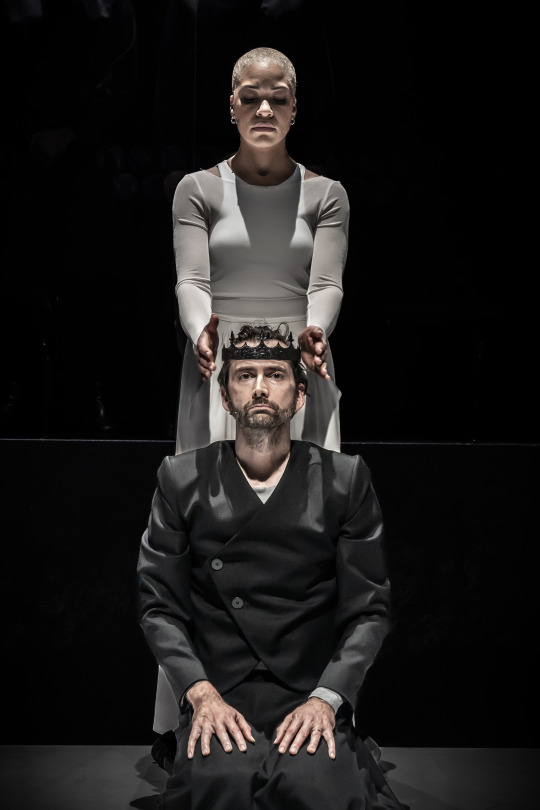
Cush Jumbo and David Tennant in Macbeth
London, Donmar Warehouse, 2023
Ph. Marc Brenner
258 notes
·
View notes
Text
'David Tennant and Cush Jumbo walk into the Donmar Warehouse’s offices, above the theatre’s rehearsal rooms in Covent Garden, and sit down on a sofa, side by side. Tennant has that look his many fans will instantly be able to call to mind of being at once stressed – with a desperado gleam in his eye – yet mischievously engaged, which has to do with the intelligence he applies to everything, the niceness he directs at everyone. He is wearing a mustard-coloured jersey and could be mistaken for someone who has been swotting in a library (actually, he has been rehearsing a fight scene). If I am right in supposing him to be tense at this mid-rehearsals moment, I know – from having interviewed him before – that it is not his way to put himself first, that he will crack on and probably, while he’s at it, crack a joke or two to keep us all in good spirits. But some degree of tension is understandable for he and Jumbo are about to perform in a play that explores stress like no other – Macbeth – and must unriddle one of the most dramatic marriages in all of Shakespeare’s plays.
This is star billing of the starriest kind. Tennant, at 52, has more triumphs under his belt than you’d think possible in a single career (including Doctor Who, Broadchurch’s detective, the serial killer Dennis Nilsen in Des, and the father in There She Goes). Jumbo has been seen on US prime time in The Good Wife and The Good Fight and in ITV’s Vera. But what counts is that each is a Shakespeare virtuoso. Jumbo, who is now 38, won an Ian Charleson award in 2012 for her Rosalind in As You Like It and, in 2013, was nominated for an Olivier for her Mark Antony in Phyllida Lloyd’s all-female Julius Caesar. More recently, she starred as a yearningly embattled Hamlet at the Young Vic. A dynamo of an actor, she is described by the former New York Times theatre critic Ben Brantley as radiating “that unquantifiable force of hunger, drive, talent usually called star power”. Tennant, meanwhile, who has played Romeo, Lysander and Benedick for the RSC, went on to embody Hamlet and Richard II in performances that have become the stuff of legend.
Jumbo settles herself cross-legged on the sofa, relaxed in her own body, wearing a white T-shirt, dusky pink tracksuit bottoms, and modestly-sized gold hoop earrings. She looks as if she has come from an exercise class – and she has in one sense – no need to ask whether rehearsals, at this stage, are full-on. As we shake hello, she apologises for a hot hand and I for a cold one, having just come in from a sharp November morning. She is chirpy, friendly, waiting expectantly for questions – but what strikes me as I look at her is how her face in repose, at once dramatic and pensive, gives almost nothing away, like a page waiting to be written on.
Max Webster, the director, is setting the play in the modern day and Macbeth, a taut and ageless thriller, is especially friendly to this approach. I want to plunge straight in to cross-question the Macbeths. Supposing I were a marriage counsellor, what might they tell me – in confidence – about their alliance? Tennant is a step ahead: “There are two versions of the marriage, aren’t there? The one at the beginning and the fractured marriage later.” And he then makes me laugh by asking intently: “Are they sharing the murder with their therapist?”
He suggests Macbeth’s “reliance” on his wife is unusual and “not necessarily to be expected in medieval Scotland” (another excuse for the contemporary production): “I look to my wife for guidance: I don’t make a decision without her,” he explains. “We’ve been through some trauma which has induced an even stronger bond.” Jumbo agrees about the bond and spells out the trauma, reminding us the Macbeths have lost a child, but hesitates to play the game (I have suggested she talk about Lady Macbeth in the first person): “I want to get it right. I don’t want to get it wrong. I don’t know what to say… If I improv Lady Macbeth, it will feel disrespectful because you don’t know if what you’re saying on her behalf is true. And then you’re going to write what I say down and she [Lady Macbeth] is going to be: ‘Thanks, Cush, for f-ing talking about me that way.’” She emphasises that, as an actor, you must never judge your character, whatever crime they might have committed. And perhaps her resistance to straying from the text is partly as a writer herself (it was her play, Josephine and I, about the entertainer and activist Josephine Baker, that put her career into fast forward, opening off Broadway in 2015).
She stresses that the great problem with Lady Macbeth is that she has become a known quantity: “She is deeply ingrained in our culture. Everyone thinks they know who she is. Most people studied the play at school. I did – I hated it. It was so boring but that’s because Shakespeare’s plays aren’t meant to be read, they’re meant to be acted. People think they know Lady Macbeth as a type – the strong, controlling woman who pushed him to do it. She does things women shouldn’t do. The greatest misconception is that we have stopped seeing Lady Macbeth as a human being.”
For Tennant, too, keeping an open mind is essential: “What I’m finding most difficult is the variety of options. I thought I knew this play very well and that it was, unlike any other Shakespeare I can remember rehearsing, straightforward. But each time I come to a scene, it goes in a direction I wasn’t expecting.” He suggests that momentum is the play’s great asset: “It has such muscle to it, it powers along. Plot-wise, it’s more front-footed than any Shakespeare play I’ve done.” And is it ever difficult for him as Macbeth to subdue his instinctive comic talent? “Well, yes, that’s right, there are no gags! But actually, there are a couple of funny bits though I’d never intentionally inflict comedy on something that can’t take it. I hope I’m creating a rounded human being with moments of lightness, even in the bleakest times.” Jumbo adds: “Bleakness is funny at times”, and Tennant, quick as a flash, tops this: “Look at our government!” (He is an outspoken Labour supporter.) Later, when I ask what makes them angriest, he says: “Well, she [Suella Braverman]’s just been sacked so… I’m now slightly less angry than I was.” Jumbo nods agreement, adding that what makes her angriest is “unkindness”.
It is Tennant who then produces, with a flourish, the key question about the Macbeths: “Why do they decide to commit a crime? What is the fatal flaw that allows them to think that’s OK? I don’t know that they, as characters, would even know. Has the loss of a child destabilised their morality?” In preparation, Tennant and Jumbo have been researching post-traumatic stress disorder. “PTSD is a modern way of understanding something that’s always been there,” suggests Tennant – and the Macbeths are traumatised three times over by battle, bereavement and murder. “We’ve looked at postpartum psychosis as well,” Jumbo adds. They have been amazed at how the findings of modern experts “track within the play”. Tennant marvels aloud: “What can Shakespeare’s own research process have been?” Jumbo reminds him that Shakespeare, like the Macbeths, lost a child. She relishes the play’s “contemporary vibe which means it’s something my 14-year-old niece will want to see. Even though you know the ending, you don’t want it to go there. It’s exciting to play that as well as to watch it.”
A further exciting challenge is the show’s use of binaural technology (Gareth Fry, who worked on Complicité’s The Encounter, is sound designer). Each audience member will be given a set of headphones and be able to eavesdrop on the Macbeths. “The technology will mess with your neurons in a did-somebody-just-breathe-on-me way,” Jumbo explains. “You’ll feel as if you’re in a conversation with us, like listening to a podcast you love where you feel you’re sat with them having coffee.” Tennant adds: “What’s thrilling is that it makes things more naturalistic – we’re able to speak conversationally.”
Fast forward to opening night: how do they manage their time just before going on stage? Tennant says: “I dearly wish I had a set of failsafe strategies. I don’t find it straightforward. I’ve never been able to banish anxiety. It can be very problematic and part of the job is dealing with it. I squirrel myself away and tend to get quite quiet.” But at the Donmar, this will be tricky as backstage space is shared. Jumbo encourages him: “When I’ve played here before, I found the group dynamic helpful,” she says, but explains that her pre-show routine has changed since her career took off and she became a mother: “These days, I no longer have the luxury of saying: I’m going to do five hours of yoga before I go on. When I leave home at four in the afternoon, I might be thinking about whether I’ll hit traffic or, whether my kid’s stuff is ready for the next day. You get better at this, the more you do it. The main thing – which doesn’t sound that sexy – is to make sure to eat at the right time, something light, like soup, because when I’m nervous I get loads of acid and that does not make me feel good on stage. I have a cut-off point for eating and that timing has become a superstition in its own way.”
In 2020, Tennant and Jumbo co-starred in the compulsively watchable and disturbing Scottish mini-series Deadwater Fell for C4. How helpful is it to have worked together before? Tennant says it is “hugely” valuable when tackling something “intense and difficult” to be with someone you are “comfortable taking chances with”. Although actors cannot depend on this luxury: “Sometimes, you have to turn up the first day and go: ‘Ah, hello, nice to meet you, we’re going to be playing psychopathic Mr and Mrs Macbeth.’” And Jumbo adds: “I’ve been asked to do this play before and said no. You have to do it with the right person. I knew this would be fun because David is a laugh as well as being very hard-working.” He responds brightly with a non sequitur: “Wait till you see my knees in a kilt…” Are you seriously going to wear a kilt, I ask. “You’ll have to wait and see,” he laughs.
It is perhaps the kilt that triggers his next observation: “We’re an entirely Scottish company, apart from Cush,” he volunteers, suggesting that Macbeth’s choice of a non-Scottish wife brings new energy to the drama. He grew up in Paisley, the son of a Presbyterian minister, and remembers how, in his childhood, “whenever an English person arrived, you’d go “Oooh… from another worrrrld!”, and he reflects: “Someone from somewhere else gives you different energy.” And while on the Scottish theme, it is worth adding that Macbeth is the part that seems patiently to have been waiting for Tennant: “People keep saying: you must have done this play before? I don’t know if Italian Shakespeareans keep being asked if they have played Romeo…”
I tell them I remember puzzling, as a schoolgirl, over Macbeth’s line about “vaulting ambition, which o’erleaps itself and falls on th’other” – the gymnastic detail beyond me. Tennant suggests that what Macbeth has, more even than ambition, is hubris. But on ambition, he and Jumbo reveal themselves to be two of a kind. Tennant says: “Ambition is not a word I’d have understood as a child but I had an ambition to become an actor from tiny – from pre-school. I did not veer off from it, I was very focused. When I look at it now, that was wildly ambitious because there were no precedents or reasons for me to believe I could.”
“For me, same,” says Jumbo, “I don’t remember ever wanting to be anything else.” She grew up in south London, second of six children. Her father is Nigerian and was a stay-at-home dad, her mother is British and worked as a psychiatric nurse. “At four, I was an avid reader and mimicker. I got into lots of trouble at school for mimicking. My ambition was similar to David’s although, as a girl, the word ‘ambition’ has always been a bit dirty…” Tennant: “It certainly is to a Scottish Presbyterian.” “Yes,” she laughs, “perhaps I should have said Celts and Blacks… Girls grow up thinking they should be modest, right? But I had so much ambition. I knew there was more for me to do and that I could be good at doing it.”
And what were they like as teenagers – as, say, 14-year-olds? Tennant says: “Uncomfortable, plooky…” What’s plooky, Jumbo and I exclaim in unison. “A Scottish word for covered in spots.” “That’s great!” laughs Jumbo. “Unstylish,” Tennant concludes. Her turn: “At 14, I was sassy, a bit mouthy, trying to get into a lot of clubs and not succeeding because I looked way too young for my age. And desperate for a snog.”
And now, as grownups, Tennant and Jumbo are, above all, keenly aware of what it means to be a parent. Jumbo has a son, Maximilian (born 2018); Tennant five children between the ages of four and 21. Parenthood, they believe, helps shape the work they do. “Being a parent magnifies the job of being an actor,” says Jumbo, “because what we’re being asked to do [as actors] is to stay playful and in the present – be big children. As a parent, you get to relive your childhood and see the world through your child’s eyes as if for the first time and more intensely. We don’t do that much as adults.”
Tennant reckons being a parent has given him “empathy, patience – or the requirement for patience – and tiredness. It gives you a big open wound you carry around, a vulnerability that is not a bad thing for this job because it means you have an emotional accessibility that can be very trying but which we need.” But the work-life balance remains, for Tennant, an ongoing struggle: “Just when you think you’ve figured it out, something happens,” he says, “and you have to recalibrate it because your children need different things at different times.” Jumbo sometimes looks to other actors/parents for advice: “To try to see what they are doing – but you never quite get it right.”
And would they agree there is a work-life balance involved in acting itself? Is acting an escape from self or a way of going deeper into themselves? Tennant says: “I don’t think the two are mutually exclusive though they sound as though they should be – I think it is both.” Jumbo agrees: “On the surface, you’re consciously stepping away from yourself but, actually, subconsciously, you have to do things instinctually so you find out more about yourself without meaning to.”
And when they go deeper, what is it that they find? Fear is another of the motors in Macbeth – what is fear for them? “Something being wrong with one of my kids,” Tennant says and Jumbo concurs. And what about fear for our planet? Tennant says: “There is so much to feel fearful and pessimistic about it can be…” Jumbo finishes his sentence: “Overwhelming.” He picks it up again: “So overwhelming that you don’t do anything.” Jumbo worries about this, tries to remind herself that doing something is better than doing nothing: “If everybody did something small in their corner of the world, the knock-on effect would be bigger.” Tennant admits to feeling “anxiety” and distinguishes it from fear. Jumbo volunteers: “I recognise fear in myself but don’t see it as a helpful emotion. It’s underactive, a place to stand still.”
As actors who have hit the jackpot, what would they say, aside from talent, has been essential to their success? Tennant says: “Luck – to be in the right place at the right time, having one job that leads to another.” Jumbo remembers: “Early in my career, I had a slow start. You have to fill your soul with creative things, which is not always easy if you can’t afford to go out. You have to find things that are free, get together with people who are creative and give you good vibes and not people who are bitter and jealous or have lots of bad things to say about the world. This tends to bring more creative things to you.” Tennant observes: “As the creative arts go, acting is a difficult one to do on your own – if you’re a painter, you can paint – even if no one is buying your paintings.” Jumbo chips in: “Because of that, it can be quite lonely when it’s not happening.” “Tennant concludes: “It’s bloody unfair – there are far too many good actors, too many of us.”
And are they in any way like the Macbeths in being partly governed by magical thinking – or do they see themselves as rationalists? (I neglect to ask whether they call Macbeth “the Scottish play”, as many actors superstitiously do.) “I am a rationalist. I’m almost aggressively anti-nonsense,” Tennant says. Jumbo, unfazed by this manifestation of reason, speaks up brightly: “I’m a magical thinker, I’m half Nigerian and that’s all about magical realism and belief in energy. If something goes my way, I think: God, I felt that energy. And the thing that drew me to theatre as a kid was its magic.” And now Tennant, alerted by the word “magic”, starts to clamber on board to agree with her – and Jumbo laughs as they acknowledge the power of what she has just said.'
#David Tennant#Hamlet#Richard II#Cush Jumbo#Deadwater Fell#Macbeth#Donmar Warehouse#There She Goes#Broadchurch#Dennis Nilson#Des#Doctor Who#As You Like It#Julius Caesar#Max Webster#Josephine & I#Gareth Fry
61 notes
·
View notes
Text


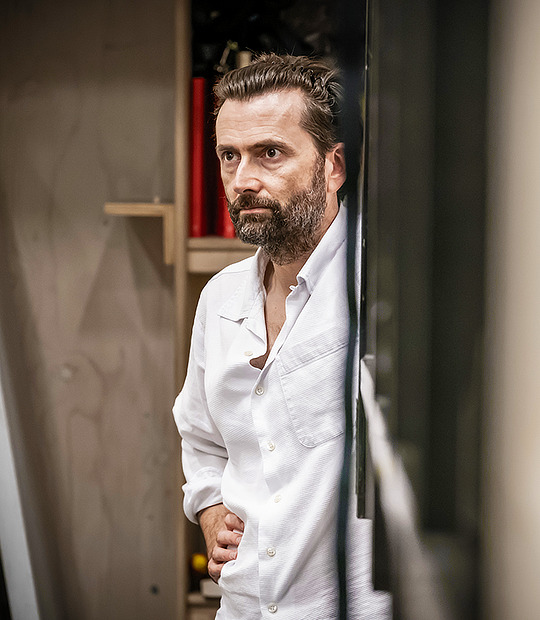
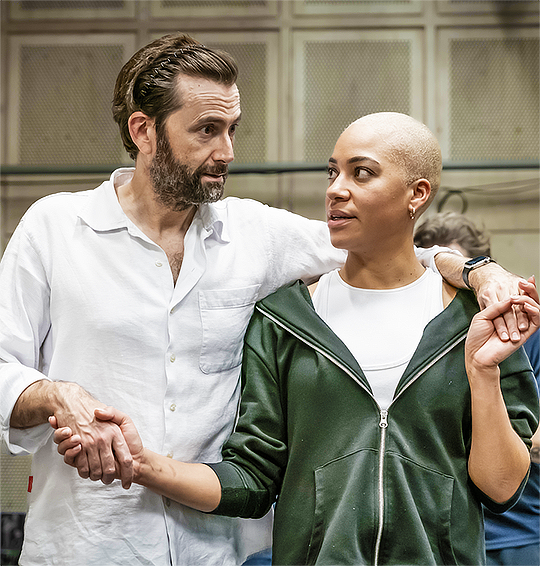

Rehearsals for Donmar Warehouse's Macbeth
44 notes
·
View notes
Photo
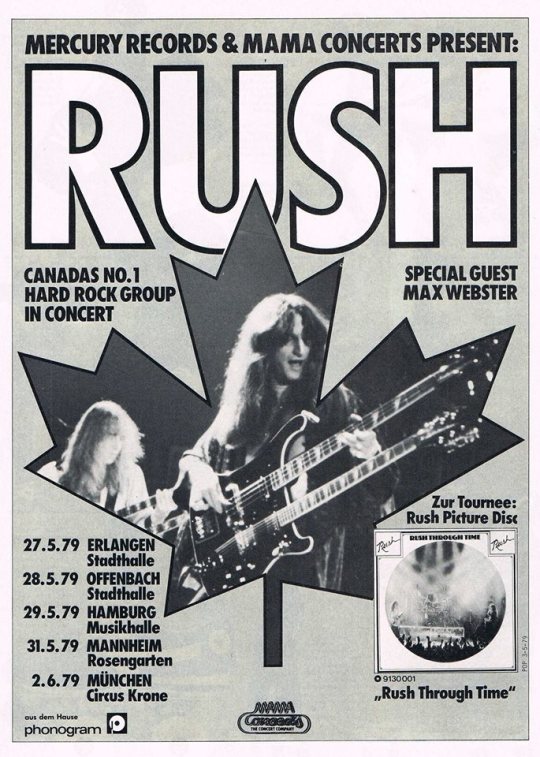
rush
1979 alternative tour poster germany
note: you can download this file and print it in original size 60x90 (22x33)
45 notes
·
View notes
Text
Theatre Review - Macbeth, Donmar Warehouse (2023) - David Tennant is back where he belongs - on a Shakespearean stage!
Theatre Review - Macbeth, Donmar Warehouse (2023) starring David Tennant & Cush Jumbo!
(Photography: Charlie Gray Studio / Artwork: AKA UK)
It’s always a great year for me when it’s announced that David Tennant is returning to the theatre and especially to Shakespeare and last night I was lucky enough to have a front row seat to the final preview of the new Donmar production of Macbeth.
In recent years, there’s been more of a tendency to find a new way to tell some of these…

View On WordPress
#Culture#Cush Jumbo#David Tennant#Donmar#Donmar Warehouse#London#Macbeth#Max Webster#Review#Shakespeare#Theatre#Theatre review#William Shakespeare
8 notes
·
View notes
Text
Round one
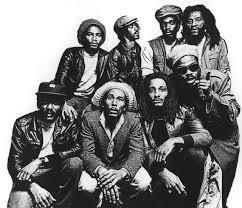
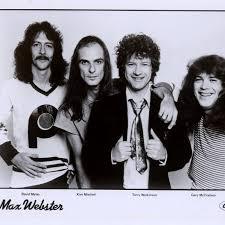
Bob Marley and the Wailers
Formed in: 1963
Genres: Reggae, ska, rocksteady
Lineup: Bob Marley – lead vocal, rhythm guitar, acoustic guitar
Aston "Family Man" Barrett – bass, piano, guitar, percussion
Carlton Barrett – drums, percussion
Carlton "Santa" Davis – drums
Tyrone Downie – keyboards, backing vocal
Alvin Patterson – percussion
Junior Marvin – lead guitar, backing vocal
Earl Lindo – keyboards
Al Anderson – lead guitar
I Threes (Rita Marley, Marcia Griffiths and Judy Mowatt) – backing vocals
Albums from the 80s:
Uprising (1980)
Confrontation (1983)
Legend (1984)
Rebel Music (1986)
Propaganda:
Max Webster
Formed in: 1972
Genres: Hard rock
Lineup: Kim Mitchell – guitar and vocals
Dave Myles – bass
Gary McCracken – drums
Pye Dubois – lyrics
Albums from the 80s:
Universal Juveniles (1980)
Diamonds Diamonds (1981)
The Best of Max Webster (1989)
Propaganda:
#round 1#bob marley and the wailers#max webster#Bob Marley#Aston Barrett#Carlton Barrett#Carlton Davis#Tyrone Downie#Alvin Patterson#Junior Marvin#Earl Lindo#Al Anderson#I Threes#kim mitchell#dave myles#Gary mccracken#Pye dubois#The hottest 80s band tournament#The hottest 80s band tourney
2 notes
·
View notes
Text
Broadway's Life of Pi Sails Strong and Magically Over From the West End
#LifeOfPiBway
#frontmezzjunkies reviews: #Broadway's #LifeOfPi
based on the book by #YannMartel
adapted by #LolitaChakrabarti
directed by #MaxWebster
starring #HiranAbeysekera as Pi
#BroadwayPlay #NewPlay #WestEndTransfer
@LifeofPiBway
Hiran Abeysekera, Mahira Kakkar, and the company of Broadway’s Life of Pi. Photo by Matthew Murphy & Evan Zimmerman for MurphyMade.
The Broadway Theatre Review: Life of Pi
By Ross
“Will you join us?” This is the compelling question asked within the new Broadway adaptation of Life of Pi by an engaging young man who has just survived a trauma more intense than any of us, most likely, could…

View On WordPress
2 notes
·
View notes
Text
344: Max Webster // A Million Vacations
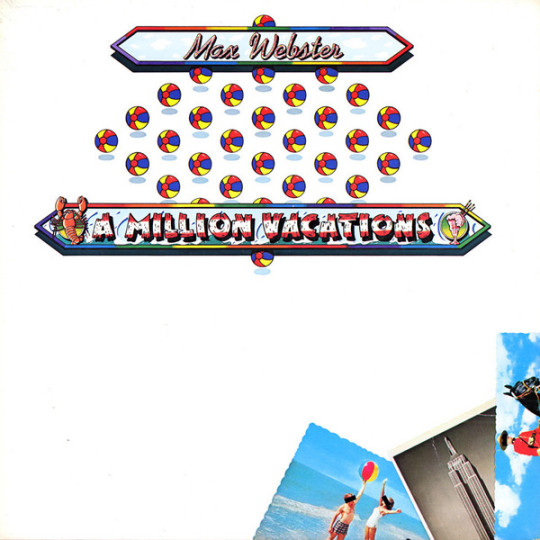
A Million Vacations
Max Webster
1979, Anthem
When you think of the classic rock heroes of the Midwest, guys like Bob Seger and John Mellencamp are usually first to mind on account of their representing “working-class authenticity.” But realistically, if you spend the 1970s and ‘80s lifting car chassis it’s likely you’ll want to spend some of your nights dreaming of another world, which might account for the region’s enduring love affair with the gay-looking straight man star children of the AOR movement. For its part, English Canada between the coasts (which is, for all intents and purposes, a continent-wide addendum to Minnesota) was right there growing out its mullets with the best of ‘em (see Trooper, Triumph, Loverboy, and so on). The best of our local product though had a distinctly Canadian quirkiness to it that made them stand out from the Yanks—a quality that could swing between subversively weird and plain corny from one song to the next.
youtube
Both Max Webster, and their longtime touring mates Rush, had this quality in spades, and you’d’ve been hard pressed to find two sorrier looking groups of chicken men on any stage anywhere. (It would not be very nice to describe Webster guitarist-vocalist Kim Mitchell as “David Lee Meth” so I simply won’t.) But despite their looks, propensity for geeky mythos-building, eccentric vocals, and a whole host of other characteristics that made them unlike, say, Journey, both bands were reliable arena draws in this country. Rush were obviously much, much bigger, but on sheer enjoyability I’d probably side with Max Webster myself, an infinitely more peculiar, less Ayn Rand-affiliated project that sort of answers the question, “What if Frank Zappa had been born in Toronto and wasn’t a snide prick?”
A Million Vacations was their commercial highwater mark in Canada (it moved about seven copies Stateside), spinning off three charting singles amid its Mothersy gags (“Research”) and more explicitly prog wanderings—no songs break the five-minute mark, but “Sun Voices” / “Moon Voices” is effectively a cosmic eight-minute suite, and the forbidden name of Kansas may rise unbidden into your mind from time to time. The musicianship is stellar throughout, and they grind out some genuinely rocking pomp riffs, but the album’s highlight is “Let Go the Line,” an iridescent, opiated ballad both uncharacteristic of the band and one I can’t really imagine any other making.
youtube
“Let Go the Line” seems to take place in a suspended moment, stoned or just dissociated, sitting on the couch at a party, drifting off into a vivid and private world:
Come drown your thoughts if they bite you
Turn off the world if it makes you hurt
I'm just a clown but I like you
I see you there in your satin shirt
Unfocused eyes on the ceiling
A trace of smile on a frozen face
I think you know what you're stealing
Life has been likened to a poker deal
Or a poor brief candle, or a karmic wheel
But all I know is that tonight I might
Let go the line, let go the line…
I think that’s a really lovely set of lyrics, but what the text doesn’t get across is the shy, almost naïve way keyboardist Terry Watkinson sings them, as though reaching uncertainly across the band’s lush, cocktail-party-at-the-end-of-the-universe music to offer a comforting hand. It’s one of the prettiest things I’ve ever heard.
344/365
#max webster#kim mitchell#canadian rock#toronto music#toronto#progressive rock#prog#let go the line#rush#anthem#music review#vinyl record#terry watkinson
0 notes
Text
The Tiger Who Came To Sea
LIFE OF PI
Birmingham Hippodrome, Tuesday 13th February 2024
Not having read Yann Martell’s novel nor having seen the subsequent film adaptation, I approach the stage adaptation (by Lolita Chakrabarti) with an open mind and a pair of fresh eyes.
We meet Pi (short for Piscine, as in the French for swimming pool) in a Canadian hospital, being interviewed by an official. Pi is the sole survivor…

View On WordPress
#Andrew T Mackay#Birmingham Hippodrome#Divesh Subaskaran#Goldy Notay#Life of Pi#Lolita Chakrabarti#Max Webster#Ralph Birtwell#review#Yann Martel
0 notes
Text
youtube
1 note
·
View note
Text
Gallery: Have you ever seen the moon set?
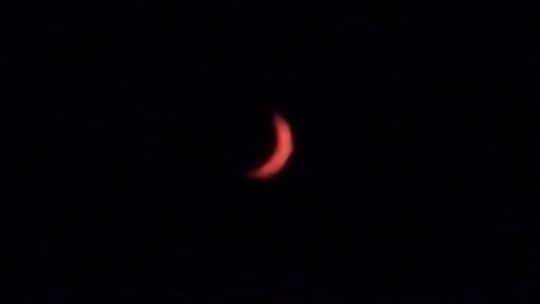
View On WordPress
0 notes
Text
this song is sooo epic
#it features rush :)#gonna see what their non-collab stuff sounds like bc this slaps#dustnroses.txt#max webster#rush band
0 notes
Text
Though I was lucky enough to see the production in person, I know many who weren't or haven't been - the last paragraph of this article therefore makes me VERY happy.
'Macbeth runs at the Donmar Warehouse until 10 February 2024 and will be filmed for cinema broadcast later this year.'
20 notes
·
View notes
Text

Album moodboard for a million vacations by max Webster.
1 note
·
View note
Photo
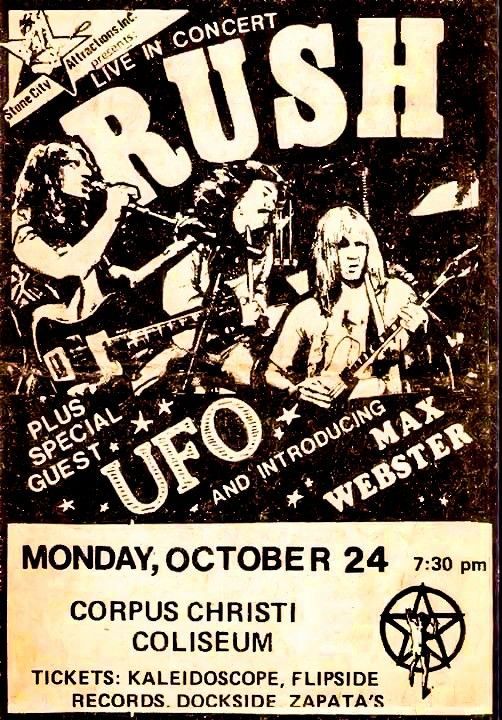
Rush
1977 concert ad Corpus Christi / United States
special guest UFO and Max Webster
7 notes
·
View notes
Text
When there’s a Chekov play and they don’t even show you the gun before it is used
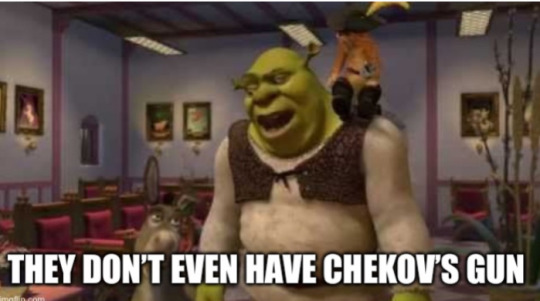
48 notes
·
View notes